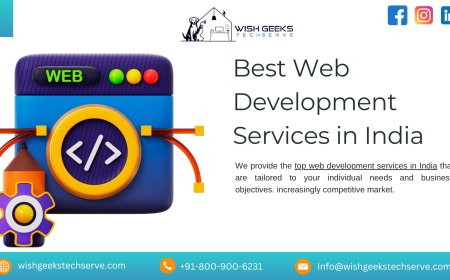Top 8 Business Strategies to Grow an Ecommerce Website
Discover the top 8 business strategies to grow your eCommerce website and increase sales. From SEO and social media marketing to personalized recommendations and data analysis, these strategies can help you optimize your online presence and achieve business success.

As the digital landscape continues to evolve, the importance of having a strong online presence for businesses cannot be overstated. Ecommerce websites serve as virtual storefronts, allowing businesses to reach a global audience and drive sales. However, simply having an ecommerce website is not enough; businesses need to implement effective strategies to ensure growth and success. In this article, we will explore the top 8 business strategies to grow an ecommerce website and maximize its potential.
Website Development
The very first step in developing an eCommerce website is to ensure that it is well designed and user-friendly. An attractive website with easy navigation and fast loading time can greatly impact the overall user experience. Invest in professional website development services to create a responsive (mobile-friendly) design and user interface for your website on all devices and screen sizes. Also, do search engine optimization (SEO) work on your new website by developing relevant keywords to use on your website, adding meta tags, and creating incredible content.
Having a well-developed website is crucial for attracting and retaining customers. A seamless checkout process, clear product descriptions, and high-quality images can enhance the overall shopping experience and increase conversion rates. Regularly update your website with new products, promotions, and blog posts to keep customers engaged and encourage repeat visits.
Implement SEO Strategies
SEO, as it is referred to in other industries and markets, is also very important and plays a vital role in driving organic traffic to your eCommerce site. Perform keyword research to find the most relevant keywords your customers are searching for. Next, use the keywords found in your website's text, meta tags, and product descriptions to rank higher. Consider creating a blog to regularly publish informative and engaging content that will attract visitors and establish your website as a trusted source in your industry.
Leverage Social Media Marketing
Social media platforms offer a valuable opportunity to connect with your audience, increase brand awareness, and drive traffic to your ecommerce website. Create a social media marketing strategy that aligns with your business goals and target audience. Engage with followers, post regularly, and leverage paid advertising to reach a wider audience. Encourage user-generated content and incentives such as giveaways and contests to increase engagement and loyalty.
Utilize Email Marketing
Email marketing remains one of the most effective ways to reach customers and promote your products. Build an email list of subscribers who are interested in your products or services and send targeted campaigns with personalized content. Use automation tools to send welcome emails, abandoned cart reminders, and promotional offers to encourage conversions. Segment your email list based on customer preferences and behavior to deliver relevant and timely messages.
Optimize for Mobile
With the increasing use of smartphones and tablets, it is essential to ensure that your ecommerce website is optimized for mobile devices. A responsive design will adapt to different screen sizes and provide a seamless experience for mobile users. Test the mobile responsiveness of your website regularly and make necessary adjustments to improve loading times and user experience. Mobile optimization is crucial for capturing a larger share of the growing mobile commerce market.
Offer Personalized Recommendations
Personalization is key to enhancing the customer experience and driving sales on your ecommerce website. Implement product recommendation algorithms that analyze customer data and behavior to suggest relevant products. Use browsing history, purchase patterns, and demographic information to tailor recommendations to individual customers. Personalized product recommendations can increase average order value, reduce cart abandonment, and improve customer satisfaction.
Provide Excellent Customer Service
Delivering exceptional customer service is essential for building trust and loyalty with your online customers. Offer multiple channels for customer support, such as live chat, email, and phone, to address inquiries and resolve issues promptly. Train your customer service team to provide knowledgeable and friendly assistance that exceeds customer expectations. Respond to customer feedback and reviews to show that you value their input and are committed to improving their shopping experience.
Analyze Data and Metrics
To track the performance of your ecommerce website and make informed business decisions, it is crucial to analyze data and metrics regularly. Use web analytics tools to monitor website traffic, conversion rates, and user behavior. Identify areas of improvement, such as high bounce rates or low conversion rates, and implement strategies to address these issues. A data-driven approach will help you optimize your website, marketing campaigns, and overall business strategy for sustained growth.
Stay Ahead of Trends
The ecommerce industry is constantly evolving, with new technologies, trends, and consumer behaviors shaping the landscape. Stay informed about industry trends and competitor strategies to remain competitive and innovative. Be proactive in adopting emerging technologies such as augmented reality, voice search, and artificial intelligence to enhance the shopping experience for your customers. By staying ahead of trends, you can position your ecommerce website for long-term success and growth.
Conclusion
growing an ecommerce website requires a strategic approach and continuous effort to attract, engage, and retain customers. Implementing the top 8 business strategies outlined in this article can help you optimize your website, drive traffic, and increase sales. By focusing on website development, SEO, social media marketing, email marketing, mobile optimization, personalized recommendations, customer service, data analysis, and industry trends, you can position your ecommerce website for success in the competitive online marketplace.
Read More: Solving E-commerce Puzzles: How Account Managers Find Solutions

































